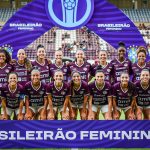The average interest rate on non-earmarked credit increased by 7.7 percentage points (pp) in the last 12 months and reached 44.2% per annum in February. In the month, the increase was 0.7 pp, according to the Monetary and Credit Statistics, released today (29), in Brasília, by the Central Bank (BC).
In terms of new hires for companies, the average credit rate was 24.2% per annum, down 1.1 pp in the month and up 2.7 pp in 12 months. In contracts with families, the average interest rate reached 58.3% per annum, up 1.7 pp in the month and 10.2 pp in 12 months.
In free credit, banks have the autonomy to lend money raised in the market and define the interest rates charged to customers. Directed credit, which has rules defined by the government, is basically intended for the housing, rural, infrastructure and microcredit sectors.
In the case of earmarked credit, the rate for individuals was 10.3% per annum in February, with a drop of 1 pp in relation to the previous month and an increase of 1.8 pp in 12 months.
For companies, the rate dropped 0.2 pp in the month and increased by 2 pp in 12 months, reaching 13.2% per annum. Thus, the average rate on earmarked credit reached 11% per annum, a reduction of 0.8 pp in the month and an increase of 1.8 pp in 12 months.
The behavior of average bank interest rates occurs at a time when the basic interest rate of the economy, the Selic, is at its highest level since January 2017, at 13.75% per year, defined by the Monetary Policy Committee (Copom) . In March of last year, the Central Bank began a cycle of monetary tightening, amid rising food, energy and fuel prices.
The Selic is the main instrument used by the Central Bank to reach the inflation target. In February, driven mainly by the readjustments applied by educational establishments at the turn of the year, the Extended National Consumer Price Index (IPCA) – considered the country’s official inflation – was 0.84%, according to the Brazilian Institute of Geography and Statistics (IBGE). With the result, the IPCA accumulates a high of 5.6% in 12 months.
The Central Bank assesses that the increase in the Selic has been passed on to the final rates of different types of credit and the Copom does not rule out the possibility of further increases if inflation does not fall as expected.
The raising of the basic rate helps to control inflation because it affects prices, since higher interest rates make credit more expensive and stimulate savings, containing heated demand.
credit card
For individuals, the month’s highlight was credit cards, whose rates increased by 6.5 pp in the month and 28.2 pp in 12 months, reaching 101.4% per annum.
In revolving credit, which is the one taken by the consumer when he pays less than the full amount of the card invoice and lasts 30 days, there was an increase of six pp from January to February and an increase of 62.2 pp in 12 months, going to 417, 4% a year. After 30 days, financial institutions pay the debt in installments. In the case of the installment card, interest rose 7.6 pp in the month and 15.3 pp in 12 months, going to 189.6% per annum.
Overdrafts also increased by 6.3 pp in the month and 4.9 pp in 12 months, reaching 137.4% per annum.
The payroll loan rate was stable in the month and rose 3.8 pp in 12 months (26.7%). In the case of non-payroll personal loans, interest rose 2.4 pp in February and 3.3 pp in 12 months (86.7% per annum).
Stability in hiring
According to the Central Bank, the maintenance of high interest rates, a result of the monetary tightening, and the very slowdown of the economy as of the second half of last year, contributed to the deceleration of bank credit. Last month, credit concessions fell 10.5% for individuals and 8.1% for companies.
In February, the stock of all loans granted by the banks of the National Financial System (SFN) was R$ 5.319 trillion, with a slight negative variation of 0.1% in relation to January. The result reflected the reduction of 0.7% in the balance of credit operations agreed with legal entities (R$ 2.081 trillion) and the increase of 0.4% in that of individuals (R$ 3.238 trillion).
In the interannual comparison, total credit grew 12.6% in February, evidencing a deceleration compared to the 13.8% in 2022. On the same basis of comparison, the balance with companies decelerated to 5.9%, compared to 8% in February 2022, as well as the volume of credit to families increased from a growth of 17.9% in February of last year to 17.4% in the same month of 2023.
Extended credit to the non-financial sector, which is credit available to companies, families and governments regardless of the source (banking, bond market or external debt) reached R$ 14.872 trillion, increasing 0.9% in the month, mainly due to the increase of public debt securities, which had an increase of 1.4%, as well as the increase of 2.3% of external loans, impacted by the exchange rate depreciation of 2.1%.
In the interannual comparison, expanded credit grew 9%, with emphasis on increases in the Financial System loan portfolio, 12.8%, private debt securities, 36.7%, and external loans, 8.3% .
indebtedness
According to the Central Bank, default (considering arrears of over 90 days) has remained stable for a long time, with small fluctuations, and registered 3.3% in February. In free credit operations for individuals, it is at 6.1% and for companies at 2.4%.
Household indebtedness – the ratio between the balance of debts and income accumulated in 12 months – was 48.8% in January, down 0.2% in the month and 1% in 12 months. With the exclusion of real estate financing, which takes a considerable amount of income, it was 31% in the first month of the year.
Income commitment – the ratio between the average amount for paying debts and the average income calculated in the period – was 27.1% in January, a reduction of 0.2% at the end of the month and an increase of 0.5% in 12 months.
These last two indicators are presented with a greater lag of the month of disclosure, as the BC uses data from the National Household Sample Survey (Pnad), from the Brazilian Institute of Geography and Statistics (IBGE).
















